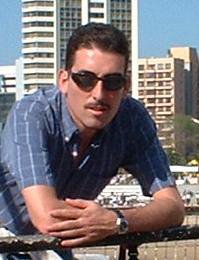Radio monitor contradicts FBI

When FBI agents stormed a farmhouse in rural Puerto Rico on Sept. 23 where independence activist Filiberto Ojeda Ríos was hiding out, it was a radio monitor who reportedly heard first from the FBI that the wanted-fugitive had been shot dead. Pedro Alberto Beauchamp´s version of what he heard on the VHF bands that Friday evening apparently contradicts the official story. The FBI maintains that it didn´t learn of Ojeda´s death until the following day because agents had to wait for a federal explosive team to arrive in Puerto Rico before they could enter the home.
Ojeda, 72, who had been wanted for skipping bail in the 1983 robbery of a Wells Fargo armored truck depot in West Hartford, Conn., bled to death as he lay wounded in the shoulder. An autopsy report revealed that Ojeda may have survived if he would have received quick medical attention.
Beauchamp, a VHF radio scanner listener from the city of Mayaguez, gave a sworn statement to local authorities who are investigating Ojeda´s death and the FBI´s role in the ambush. Last month, the Puerto Rico daily Primera Hora detailed portions of Beauchamp´s sworn statement taken by the Mayaguez district attorney. In it, Beauchamp said he was monitoring the frequencies between 144-174 mHz when he allegedly heard an agent on the scene excitedly contact his superior saying "Ojeda is dead." The zealous agent reportedly forgot to switch on his radio´s scrambler. This occurred at around 7:20 p.m., some three hours after the standoff began.
The following day, FBI Special Agent in Charge Luis Fraticelli announced that Ojeda was indeed shot dead but didn´t learn about it until agents could enter the farmhouse. He explained that his agents had specific orders from Washington not to go inside until an explosives team could arrive in Puerto Rico and assure that it was safe. Ojeda and his terror group Macheteros or "cane-cutters" had used explosives during their rash of attacks in the 1980s.
Puerto Rico´s Attorney General Roberto Sánchez Ramos has said that FBI has not been fully cooperative in the local investigation. The law enforcement bureau has denied turning over documents in the case and refused to allow local investigators interview agents at the scene. Nevertheless because of mounting public and political pressure, the U.S. Office of the Inspector General has opened an investigation into the FBI´s actions.
Fortunately, monitoring official radio communications in the United States is not a crime, although some conservative lawmakers would love to make it one. (They´ve all ready taken away our rights to the cellular phone bands!) Divulging publicly what was said could be prosecuted as an offense. But then again, Beauchamp only related what he heard to a prosecutor. How the press got a hold of the details of his sworn statement is a totally different matter.




